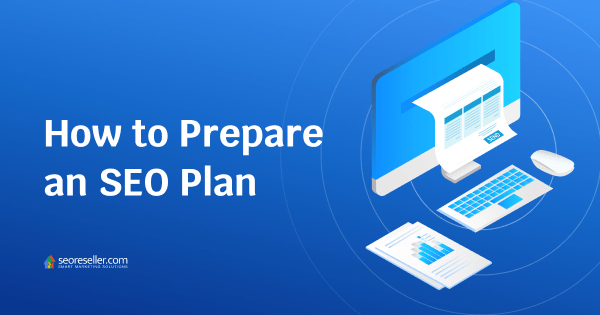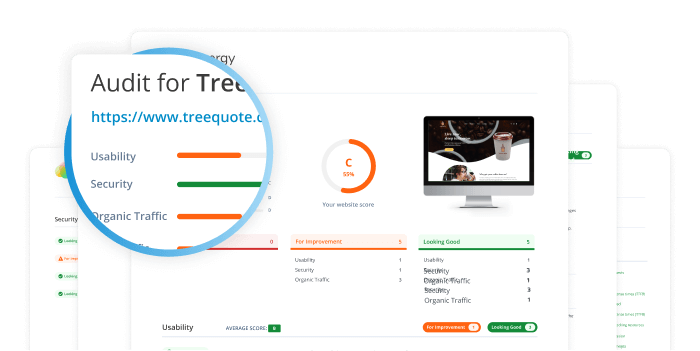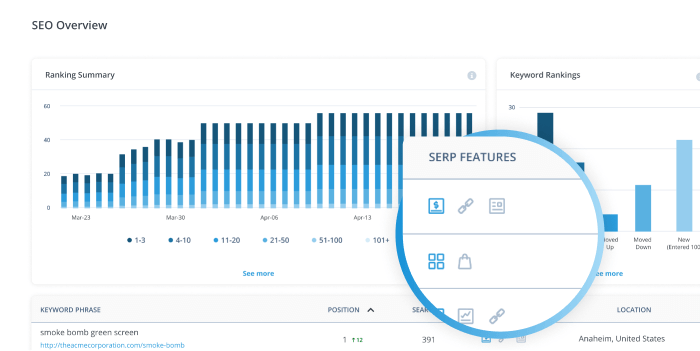Creating your SEO plan is the easiest way to manage and keep track of your SEO. It’s also important to prepare it beforehand so that you know which SEO activities or SEO services you’ll need to successfully achieve your goals. Whether you’re setting it up at the end of the year or at the start of the year, it’s never too late to get your SEO strategy ready.
What is an SEO Plan or SEO Strategy?
An SEO strategic plan is the map of all your SEO activities. These activities should contain the solutions that will enable a business website to hit its goals. Even though SEO is an ongoing process, effectively planning and executing an SEO strategy can greatly improve visibility in the coming months as well as build up the momentum for the next ones.
An SEO plan should initially involve keyword research, competitive research & analysis, on-page SEO, off-page SEO, and technical SEO. Read along to see how you can effectively prepare an SEO plan.
1. Define Objectives of the SEO Campaign
The first step is to pinpoint what you need to accomplish during this SEO campaign. Define the goals and objectives in measurable terms. It’s important to be aware of what SEO metrics to monitor in order to track future progress as well. Here are some examples of SEO goals and objectives:
Goal: Increase the number of leads
Objectives:
- Utilize online directories or listings
- Boost keyword ranking
- Optimize content
SEO metrics to track: Click-Through Rate (CTR), Pagespeed, Bounce Rate, Average Time on Page, Qualified Leads
Goal: Boost ecommerce sales
Objectives:
- Increase amount of traffic by xx%
- Optimize Content
- Optimize CTA
SEO metrics to track: Click-Through Rate (CTR), Bounce Rate, Average Time on Page, Conversion Rate (Organic)
Goal: Increase brand awareness
Objectives:
- Promote key products
- Increase backlinks by x%
- Increase shares by x%
- Increase sign-ups by x%
SEO metrics to track: Domain Authority, Click-Through Rate, Keyword Ranking, Average Time On Page, Impressions
Having clear goals and objectives will allow you to understand the elements you need to include in your plan in order to make it more effective.
2. Conduct an SEO Audit
An SEO audit is the process of evaluating a website based on how it performs in search results. The goal of an SEO audit is to check the health of a website to see if it’s functioning as it should and then provide solutions to further optimize the site. It’s a crucial step to determine what activities are needed to accomplish your goals.
Learning how to do an SEO audit is a skill that agency owners, consultants or SEO experts should have because it allows you to know everything about the website, along with its performance, and what elements need fixing or what opportunities can be capitalized.
An SEO audit is an important step before drafting the plan as it provides you with the following:
- Action points for your SEO implementation strategy
- Data you can use to analyze and compare previous and current performance
- Insights into whether your SEO efforts are working or not
- Competitor analysis
- Making informed and data-driven decisions based on facts and valuable information
This is one of the initial steps you have to do to develop your strategy. There are a number of tools that can make this process easier like Screaming Frog, SEOptimer, DeepCrawl, and our very own SEOReseller SEO Audit Tool, to name a few.
3. Analyze the Results
After conducting an SEO audit it’s now time to analyze results and develop premises that will lead to recommendations. This will set off the road map that will lead you to your SEO goals. It will define the elements and tasks that need to be done as well as identify priorities for the duration of the campaign.
4. Recommendation Based On Findings
After the initial analysis, an SEO’s job is to provide recommendations and solutions that will keep the website optimized and ranking.
This is where you’ll decide what changes you want to see and then decide how you’re going to make them happen. Since SEO is an ongoing process, this is a stage that needs to be updated and checked frequently.
If you’re working with an SEO partner, then they will be presenting the right SEO services that will aid the plan. Make sure to formulate a plan taking in consideration the circumstances surrounding the business. Factors like how big the website is, how competitive the market is or if it needs redesigning or maintenance should be taken into consideration.
5. Keyword Research
The next part would focus on keyword research since this part will fully develop the plan. By listing down the target keywords you can now plan how they will fit into optimized service pages, pillar pages (these are target pages you want to rank in the SERPs), and your off-page SEO efforts (link building, etc.). Different SEO experts or agencies have different research methods. Keyword research can come from customers, surveys, clients, or keyword research tools.
When it comes to target keywords it’s important to know how to play with the balance between longtail and short-tail keywords. Short tail keywords are more likely to have a larger search volume than long-tail keywords. For example, “pizza delivery” which is a short tail keyword will have more people searching for it than “24 hour pizza delivery new york”. However, it’s the SEO expert’s job to judge which one will be more beneficial for the project.
Keywords are the popular terms used by the target audience which means targeting the right ones will allow you to speak their language.
6. Implementation
Once you have your SEO plan ready complete with target keywords, content, website development, on-page and off-page SEO activities — it’s time for the implementation.
It’s important that all parties involved understand the plan. On your part, it should be clear who will be responsible in carrying out these changes, when the changes take place and for how long. If you’re working with a third-party provider, then make sure that the timeline and deliverables are clear to both parties.
7. Tracking & Reporting
SEO is an ongoing process and a long term strategy. Take note that results won’t come overnight and like any other plan it’s very important to track its progress. This way, you’re sure to stay on track and on top of things.
Track with the business goal in mind.
Track with the business goal in mind. It’s easy to get carried away with numbers and volume, however, in order to strategically reach your goals, you need to learn how to evaluate results based on your plan’s purpose.
Some of the most recommended SEO tools when it comes to tracking and monitoring your results are Google Search Console, Google Analytics, Google Data Studio, Ahrefs Site Explorer, WebCEO and SEMRush.
If you are someone who handles multiple accounts, then an SEO dashboard would come in handy as it will enable you to track and manage all accounts in one place.
Do What You’ve Set Out To Do
SEO plans are roadmaps to your goals. Bear in mind that the digital landscape continues to evolve and change so your SEO plan needs to be flexible to accommodate unforeseen changes in the future. You will need your SEO expert to be able to stay on top of trends so that your SEO strategy is properly updated.
There are several steps in the planning process. If you think that you need an extra hand with regards to strategy and implementation, then partnering with an SEO agency is a good option. Remember, a well-thought SEO plan will set you up for success in the future. It’s wise to do it right from the get-go to ensure that you accomplish what you’ve set out to do.





